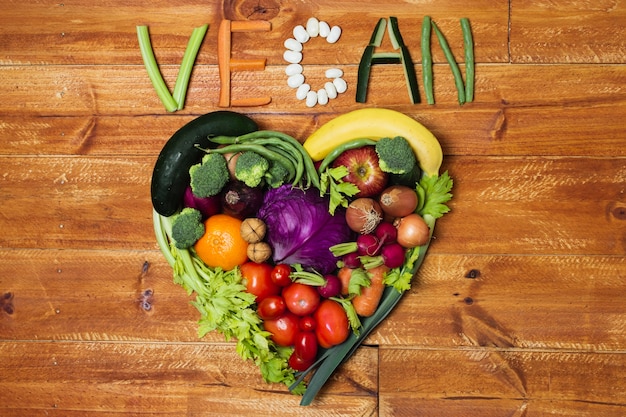
Did you go vegan for Veganuary this year, or are you thinking about making plant-based eating a more permanent part of your life? Dr. Gemma Newman has some great tips to help you out.
With so many different diets out there—low fat, high fat, low carb, high carb, vegan, paleo, keto—it’s easy to get confused. But which one really works? Veganuary is still going strong and continues to gain popularity. In 2018, 170,000 people took part, a big jump from the previous year. By last year, that number had grown to over 250,000, and it’s likely even higher this year.
You might be wondering if a vegan diet is healthy and what sets it apart from other diets that claim to benefit our health. There’s a lot of conflicting information about nutrition, partly because of media and food companies, and sometimes even health professionals contribute to the confusion.
However, no one disputes the importance of eating plenty of vegetables and fruits, sticking to whole, unprocessed foods, and limiting processed meats, sugary snacks, sodas, and refined grains. Eating well is key to good health, and moderation isn’t always the best route. For example, we don’t tell smokers to smoke in moderation, so why should it be any different with sugary drinks and processed meats?
The World Health Organization (WHO) classifies processed meats as a known cause of cancer, putting them in the same category as other carcinogens. Even with moderation, processed meats are harmful.
Dr. David Katz, one of the founders of the American College of Lifestyle Medicine, gathered top nutrition scientists to establish a consensus through the True Health Initiative. They agreed that a diet rich in vegetables, fruits, beans, nuts, seeds, whole grains, and water is essential for good health. Both paleo and whole food plant-based diets share more in common with each other than with a typical Western diet.
When considering heart health, a whole food plant-based diet is the only one proven to reverse coronary artery blockages, as shown in the Lifestyle Heart Trial published in The Lancet in 1990, and similar findings from the Mount Abu Heart Trial.
Although adopting a plant-based diet can seem daunting, especially for those used to a Western diet, it’s quite feasible with some guidance. If you’re not sure where to start, there are several cookbooks that can help, like “So Vegan in 5” by Roxy Pope and Ben Pook, and “BOSH!” by Henry Firth and Ian Theasby.
Adopting a plant-based diet can begin with small steps. Start by making your favorite meals plant-based, like turning a chicken curry into a chickpea curry or a beef Bolognese into a lentil Bolognese. Gradually, you can then experiment with new flavors and ideas, making your journey enjoyable and sustainable.
A good way to ease into this lifestyle is by gradually changing your meals. Start with breakfast, making it plant-based two to three times a week, and then do the same for lunch. Once comfortable, increase the number of plant-based meals until it becomes a habit.
Switching to a whole food plant-based diet can yield benefits quickly—usually within a few weeks. However, your gut bacteria will need time to adjust, so initial bloating or flatulence might occur.
Both the American Dietetic Association and the British Dietetic Association agree that well-planned plant-based diets can support healthy living at any age and may help prevent diseases such as heart disease and cancer. They also associate these diets with a lower risk of respiratory issues, allergies, and infections in children.
Unfortunately, modern soil depletion affects the nutrient content of our food. A Western diet is often deficient in crucial nutrients like magnesium, folate, and fiber. A well-planned plant-based diet can be nutrient-dense and beneficial, especially if supplemented properly.
Important supplements for a plant-based diet include vitamin B12, which is vital but harder to obtain from plants. Adults need about 1.5mcg of B12 daily, but taking at least 10mcg daily or 2000mcg weekly is recommended to prevent deficiency. You can get B12 from fortified foods or supplements.
Vitamin D is another essential supplement—aim for 1000iu daily if your levels are normal and 2000iu if they’re low. EPA/DHA omega-3 fatty acids supplements from algae can also be beneficial.
Flaxseeds are a superfood and can be easily added to your meals to boost heart health. Dr. Gemma Newman has spent 15 years in medicine and now helps people transition to healthier lifestyles as a senior partner at a family medical practice.
Making the switch to a plant-based diet can significantly improve your health and well-being when done thoughtfully and intentionally.